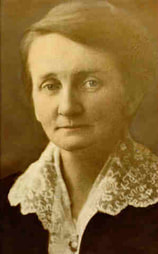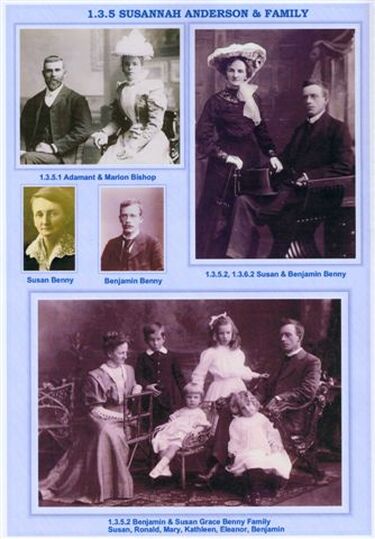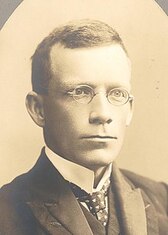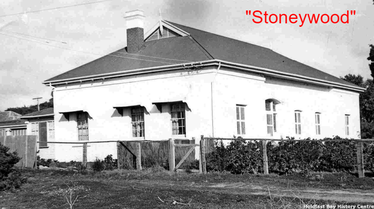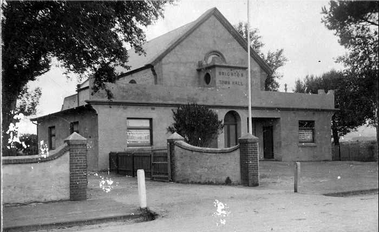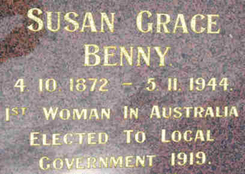Susan Grace Benny
- the first woman to be elected to any tier of government in Australia.
On the 10 October 2019, we celebrated a remarkable achievement 100 years ago when a South Australian became the first woman elected to any tier of government in Australia. That woman was Susan Grace Benny, elected by petition on 22 December 1919 as a Local Government Councillor, Seacliff Ward, Brighton Council (now Holdfast Bay Council). Women were soon elected to councils in other states. In 2019, we had the highest number of women councillors in Australian history.
Grace's contribution to public life and as the first woman in Australia to be elected to any tier of government in Australia has been honoured by:
- 1986 Adelaide City Council Jubilee 150 Walk plaque on North Terrace near the corner of King William Street
- Brighton Council named Benny Crescent and Susan Grace Benny Park, Seacliff in her honour.
- Benny Place, Chisholm, Canberra is named after her.
- In 2018 Holdfast Bay Council erected a bronze bust of Grace in Brighton Library grounds
- Grace Benny Scholarship, awarded annually by the Australian Local Government Women’s Association (South Australian Branch)
- Benny’s centenary is recognised by a new national award- the Susan Grace Benny Award- Women in Local Government - announced at the 2019 Australian Local Government National Assembly in Canberra.
- Susan Grace Benny House was at the corner of Highet and Brighton Roads. The house, which belonged to the Council, was used by Brighton Women's Service Association and the Red Cross. It has since been demolished.
- Bronze bust of Grace Benny in Brighton Library grounds erected by Holdfast Bay Council in 2018
- On South Australian Women's Honour Roll nominated by Cr Kristina Barnett, ALGWA SA Branch Inc
- "Ex-Senator Benny Guilty". The Register. Adelaide: National Library of Australia. 11 June 1926. p. 11. Suzanne Edgar, 'Benny, Susan Grace (1872–1944)', Australian Dictionary of Biography, National Centre of Biography, Australian National University, published in hardcopy 1979,
- "Every Woman"The Journal (Adelaide). LIV (15099). South Australia. 13 December 1919. p. 16.
- (Advertiser, 13 December 1919, p1).
- Carr, Adam (2008). "Australian Election Archive". Psephos, Adam Carr's Election Archive.
- https://en.wikipedia.org/wiki/Susan_Grace_Benny
- Susan Grace Benny. Local Government Association of South Australia.
- Elton, Jude. "Susan Grace Benny". Adelaidia. History SA.
- "Trust Money". The News (Adelaide: National Library of Australia). 12 February 1926. p. 1 Edition: Home Edition. "Ex-Senator Benny Guilty". The Register (Adelaide: National Library of Australia). 11 June 1926. p. 11.
- "Struck off Roll.". The News (Adelaide: National Library of Australia). 2 March 1926. p. 1 Edition: Home Edition.
- "City and Suburban Real Estate”, The Mail (Adelaide: National Library of Australia).14 February1925 p. 14.
- http://www.onkaparingacity.com/libraries/localstudies/view_details.asp?RefID=2282
- Website: 200 Australian Women
- http://pandora.nla.gov.au/pan/78644/20071105-1315/www.200australianwomen.com/names/078.html
- Women's Non-party Political Organisations, Judith Smart, The University of Melbourne/RMIT University http://www.womenaustralia.info/leaders/biogs/WLE0693b.htm
- The Biographical Dictionary of the Australian Senate, vol. 1, 1901-1929, Melbourne University Press, Carlton South, Vic., 2000, pp. 196-1
Find us on Facebook, Instagram and Email |

